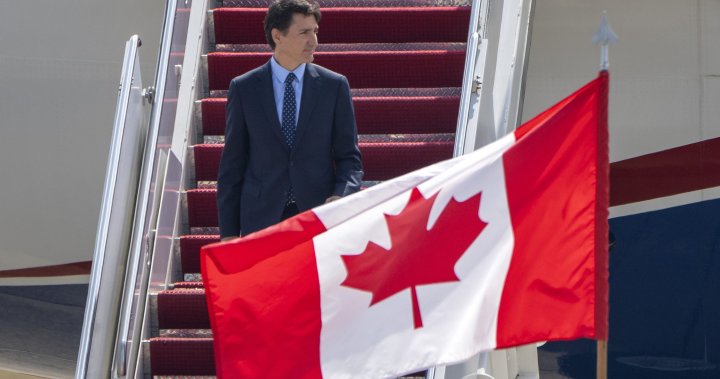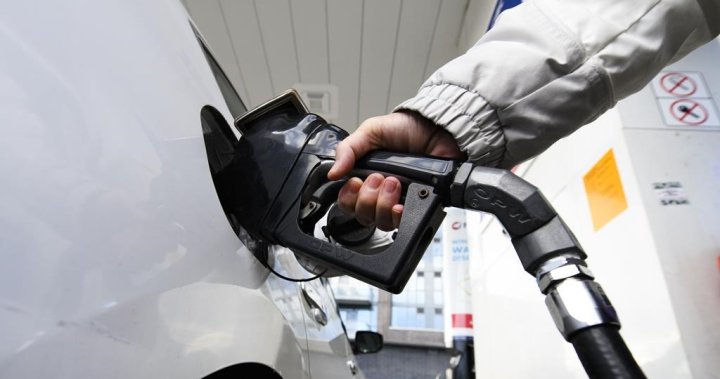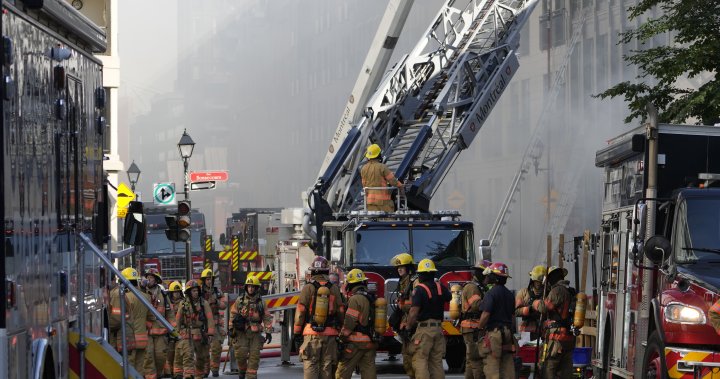As NATO leaders gather in Washington, D.C., for their annual summit that begins Tuesday, Canada’s involvement in major discussions may be complicated by how allies view its commitment to defence spending, analysts say.
The defence alliance is marking its 75th anniversary by looking toward an uncertain future and growing global threat environment where both the Arctic and the Indo-Pacific are set to be top priorities, along with the ongoing war in Ukraine. Security in the far north is of particular concern to Canada, which also has heavy military investments in Eastern Europe and the northern Pacific.
But pressure to meet NATO’s threshold of spending at least two per cent of GDP on defence — and present a concrete plan to get there — may come to a head at the summit and relegate Canada to the background in the talks.
“It’s not just the two per cent,” said Richard Shimooka, a senior fellow at the Macdonald-Laurier Institute who studies defence policy. “A lot of the spending (currently committed by Canada) is backloaded into the 2030s, and it will take a long time to deliver on. … And I feel that a lot of the NATO members just don’t have time for this.”

Canada’s updated defence policy forecasts spending will rise from 1.37 per cent of GDP currently to 1.76 per cent by 2030.
Defence Minister Bill Blair has repeatedly said further unallocated spending not specified in the policy update will get Canada to the two-per cent target, but has yet to say when that might happen.
Canada is the only NATO ally not meeting the alliance’s target that has yet to provide a detailed roadmap on getting to two per cent, which NATO Secretary-General Jens Stoltenberg has said will be expected at this week’s summit.
“I have no intention of Canada being a free-rider,” Blair told the FP Security Forum in Washington on Monday on the eve of the summit.
“I’m hoping that over the course of the next few days, I will be able to share that credible, verifiable plan with our allies to provide them with assurances that Canada understands its responsibility and we’re going to live up to our responsibility.”
The lack of a plan has drawn bipartisan condemnation from Washington, with 23 U.S. senators urging Prime Minister Justin Trudeau directly to provide a plan for boosting spending.
Sources have told Global News the Biden administration is losing patience with Canada and wants to see a plan that includes submarines and missile defence that could help reach the target.
Blair has said the government is looking into procuring a new submarine fleet and seeking to work with European allies on the file, but cannot commit more spending until a decision on what to purchase has been made. He has not provided a timeline on that decision.
The email you need for the day’s
top news stories from Canada and around the world.
On Monday, Blair’s office released a list of quotes from NATO and American leaders praising Canada’s defence policy update and commitments to boost spending.

But there remains frustration with a lot of the language used in the document that makes repeated promises to “explore” things like new submarines, missile defence and other technologies, and even career support for military members.
“Actors are listened to if they have clear and convincing messages, and clear and convincing messages are usually drawn from well-thought-out strategies and policies,” said Ann Fitz-Gerald, director of the Balsillie School of International Affairs and a political science professor at Wilfrid Laurier University.
“Many would argue that that ‘exploring’ should be done already.”
Focus on more than Arctic security
Canada has characterized beefing up security in the Arctic as the “most urgent and important task” facing the Canadian Forces amid a changing geopolitical and physical landscape, thanks to climate change.
Melting polar ice caps are making the far north more accessible to countries like Russia and China, which have grown closer since Russia’s full-scale invasion of Ukraine more than two years ago.
In order to address these challenges, the government plans on purchasing new early warning aircrafts, tactical helicopters, long range missiles as a threat deterrence and increased sonar and satellite capabilities.
Canada has also pointed to its commitment of nearly $40 billion over 20 years toward modernization of its NORAD capabilities, including over-the-horizon radar systems that can detect encroaching threats.
Shimooka points out that technology and other capabilities will take years to fully develop and train military members.

Analysts suggest Canada could essentially trade a commitment to lead on Arctic security for resources from NATO allies in other areas. That could further risk Canada being seen as a reliant partner that’s not pulling its weight across the scope of the alliance’s priorities.
“The Canadian government has already heard multiple times from NATO, from the leadership of NATO, from the secretary-general of NATO, from all of the individual countries that are engaged … you need to stop being a parasite on the periphery of NATO,” retired Gen. Rick Hillier, Canada’s former chief of the defence staff, told Global News.
Meanwhile, Russian President Vladimir Putin last month signed a new defence pact with North Korea that raised alarm bells around the world, further eliminating whatever divide remained between the European and Indo-Pacific theatres.
Canada has played a lead role in enforcing United Nations sanctions on North Korea through its Operation Neon air and naval surveillance mission. It has also sought to boost its economic and military standing in the Indo-Pacific along with the U.S., which Russia and China are seeking to counter.
The NATO summit will include a meeting with European and Indo-Pacific partners, including South Korea and Japan, to further deepen cooperation in the military and cybersecurity realms. Canada should be at that meeting, some analysts say.
“Not being a party to that conversation would be really detrimental to Canada’s economic security and prosperity,” said Vina Nadjibulla, vice-president of research and strategy at the Asia Pacific Foundation of Canada.
“We are at risk of being shut out of these discussions, which is why it’s important for us to really assert ourselves now and step up our resources.”

Although outgoing chief of the defence staff Gen. Wayne Eyre has said Canada’s military recruitment and budgetary challenges are improving, it does not yet have the capacity to send additional frigates to the region as promised in the Indo-Pacific strategy.
Swedish troops will also be counted on to help bolster the Canadian-led battle group in Latvia — one of eight such multinational forces meant to deter and respond to threats posed by Russia — to a larger brigade by 2026.
If Canada is not seen as being able to quickly meet the moment, analysts say it risks attracting further frustration from its NATO allies.
Its place in the alliance itself could also be threatened if Republicans take full control of Congress and Donald Trump — who has said he wouldn’t come to the aid of allies not paying their fair share in defence in the event of an attack — returns to the White House.
Trudeau will also be using his time in Washington for other meetings in the city to bolster Team Canada efforts ahead of the U.S. election to ensure the government is prepared for any outcome. He will be meeting with Republican and Democrat politicians including Senate Majority Leader Chuck Schumer of New York and Senate Minority Leader Mitch McConnell of Kentucky.
Expect security to come up in those discussions too, Shimooka says.
“There is a risk of U.S. congressmen and women continuing to look at Canada’s commitments and saying, ‘This is unacceptable,’” he said.
— with files from Global’s Mercedes Stephenson and the Canadian Press





